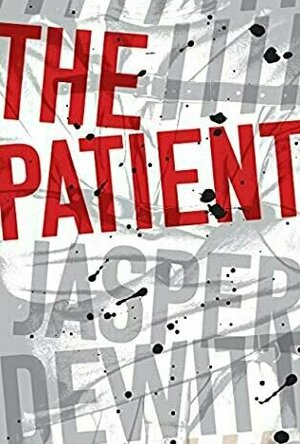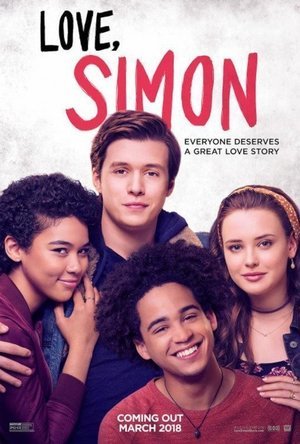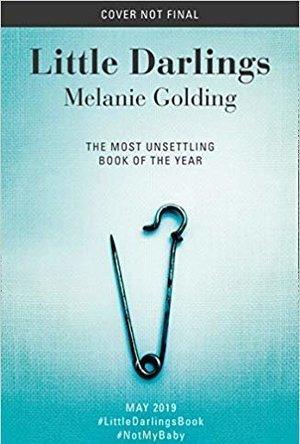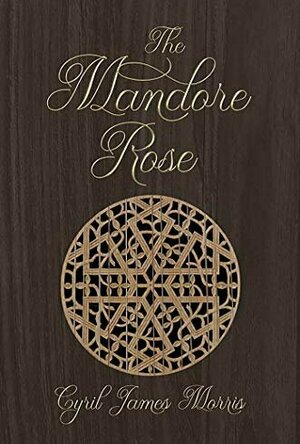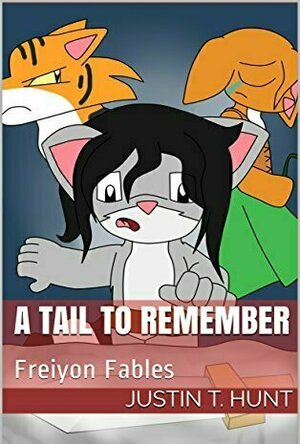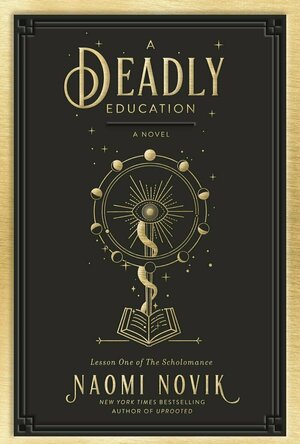Search
Necole (36 KP) rated The Patient in Books
Nov 24, 2021
Asylum Fright
November 20, 2021
I just got done reading The Patient by Jasper Dewitt and was not expecting to get sucked into a one morning read-a-thon. I think I read it in maybe 2 ½ hours. With that being said, I gave this book a 3-star review, although it should be a 3 ½-star review. I will start with the good and end with the bad.
A young, overconfident psychiatrist gets a new job at a mental asylum and chronicles his attempts to treat a profoundly disturbed patient who has been in the hospital since early childhood through a series of online posts. Each chapter is a new day and a new post that Parker has shared with the readers. This manuscript writing style was a unique way to give us Parker’s perspective and account of what occurred with patient “Joe”. I also enjoyed the transcripts and the audio tapes added into the chapters. These few thing added more layers to the story, sucked you in deeper, and gave an unexpecting twist to the book. It was like you were really reading a true account from whom it occurred to.
After reading all the hype and the synopsis of the book, I was hooked and reeled in. A psychiatrist, a mental patient, an asylum set in my home state of Connecticut, strange occurrences to those who have treated patient “Joe”, misdiagnosis’, undiagnosis’, a 30 plus year mystery … The Patient seemed to have it all!!! Even dark, creepy, supernatural horror!!! A perfectly blended cocktail of psychological thriller and supernatural horror.
Unfortunately, it fell flat for me. I kept anticipating more twists, turns, gore and scare. I wanted this book to haunt me well after I finished. The ending felt rushed and not well thought out, I felt like I was cheated out of being scared out of my mind. There was enough horror, suspense, thrills and mystery to keep me reading but after completing The Patient, I just felt let down. I feel like even as the story unfolds, Jasper could have gotten more in depth with the creepy and horror factor but instead it was almost basic. I tried to let my imagination scare with the images the author tries to put in your mind but again I was disappointed.
If you want a quick read that will scare you a little but will keep the suspense up, then pick this up because one person’s opinion is not another’s and who knows, you might scare more easily than me.
I just got done reading The Patient by Jasper Dewitt and was not expecting to get sucked into a one morning read-a-thon. I think I read it in maybe 2 ½ hours. With that being said, I gave this book a 3-star review, although it should be a 3 ½-star review. I will start with the good and end with the bad.
A young, overconfident psychiatrist gets a new job at a mental asylum and chronicles his attempts to treat a profoundly disturbed patient who has been in the hospital since early childhood through a series of online posts. Each chapter is a new day and a new post that Parker has shared with the readers. This manuscript writing style was a unique way to give us Parker’s perspective and account of what occurred with patient “Joe”. I also enjoyed the transcripts and the audio tapes added into the chapters. These few thing added more layers to the story, sucked you in deeper, and gave an unexpecting twist to the book. It was like you were really reading a true account from whom it occurred to.
After reading all the hype and the synopsis of the book, I was hooked and reeled in. A psychiatrist, a mental patient, an asylum set in my home state of Connecticut, strange occurrences to those who have treated patient “Joe”, misdiagnosis’, undiagnosis’, a 30 plus year mystery … The Patient seemed to have it all!!! Even dark, creepy, supernatural horror!!! A perfectly blended cocktail of psychological thriller and supernatural horror.
Unfortunately, it fell flat for me. I kept anticipating more twists, turns, gore and scare. I wanted this book to haunt me well after I finished. The ending felt rushed and not well thought out, I felt like I was cheated out of being scared out of my mind. There was enough horror, suspense, thrills and mystery to keep me reading but after completing The Patient, I just felt let down. I feel like even as the story unfolds, Jasper could have gotten more in depth with the creepy and horror factor but instead it was almost basic. I tried to let my imagination scare with the images the author tries to put in your mind but again I was disappointed.
If you want a quick read that will scare you a little but will keep the suspense up, then pick this up because one person’s opinion is not another’s and who knows, you might scare more easily than me.
Bob Mann (459 KP) rated Love, Simon (2018) in Movies
Sep 29, 2021
Time to Exhale.
I saw this as a Cineworld “Secret Unlimited Screening” event (for non-UK readers, Cineworld is one of the main movie-theater chains), so went in – like the majority of the audience I suspect – predicting early sight of Lara Croft in skin tight shorts! This was a bit different! A secret screening is an interesting concept, and really tests the metal of a film in engaging its audience early. This one failed to some degree, with seven people (I was counting) walking out in the first 10 minutes. (To be fair on those seven, the film’s first 20 minutes are rather laborious; and to be fair on the film, this was a pretty full auditorium so as a percentage drop out it was low).
Teen heartthrob Nick Robinson (the older brother from “Jurassic World“) plays the eponymous hero who has a well-buried secret: he’s gay. Growing up in Pleasantville (I almost expected someone to yell “Cat!” and the fire brigade turn up) he feels unable to come out to either his high-school friends or his loving family (“Apple pie cooling on the window-sill anyone?”). But striking up an email relationship with another closeted male from the same high school – nicknamed “Blue” – allows him to explore his feelings about his sexuality and fall in love all at the same time. But neither coming out or love run terribly smoothly for Simon…
Happy families. From left, Nick Robinson, Talitha Bateman, Jennifer Garner and Josh Duhamel.
I am forty years adrift from being able to directly relate to the stresses and strains of modern high-school life (though I AM still 17 on the inside people!) But even to me, this film doesn’t feel like it should be set in the present day. While it needs to be for its tweeting and blogging story-line, surely there are few backwaters in either America or Western Europe where gay people have to stay so silent? An 80’s or early 90’s setting would, I think, have worked so much better. (Ironically, its not his gay-ness or otherwise that his friends get upset by, but something far more fundamental in the human condition).
Definitely set in the present day.
That aside, this is a sweet and ultimately quite engaging film that I’m sure will be a big hit with a teenage audience. While for me it didn’t come close to ticking all of the coming-of-age boxes that the inestimable “Lady Bird” did, it does cover old ground in a new and refreshing way, and I’m sure it WILL be very helpful for many gay people in getting the courage to come out. Times are different today, but I still can imagine few things requiring more bravery than declaring you are gay to your parents and closest friends (even though, deep down, they surely already suspect).
So, it’s sweet, but also for me (although far from its target audience) rather flat. As a comedy drama, the moments of comedy are few and far between, with only one or two of the lines making me chuckle rather than smile. A quiet auditorium is not a good sign for a film with “Comedy” in its imdb description. It does however occasionally break through with something memorable: a full on college “La La Land” scene (“Not that gay” – LoL) is a case in point. And all of the scenes featuring comedy actress Natasha Rothwell as drama teacher Ms Allbright add much needed energy and humour to the film.
Someone should tell him… regardless of gender preference, sex is never going to work like this.
Of the teen actors, Robinson is fine but it is Katherine Langford as Simon’s friend Leah who stood out for me. Talitha Eliana Bateman (“The 5th Wave“; looking a whole lot younger than her 16 years!) is also impressive as Simon’s culinary sister Nora. Simon’s parents are played by Jennifer Garner (“Dallas Buyers Club“) and Josh Duhamel (a new one on me… he’s been in the “Transformers” films apparently).
Simon says walk this way. From left, Jorge Lendeborg Jr., Nich Robinson, Alexandra Shipp and Katherine Langford.
The screenplay is by movie virgins Elizabeth Berger and Isaac Aptaker, and is a slightly patchy affair. There are scenes that worked well (a cringe inducing sports stadium scene for example) but other times where it seems to be trying too hard for T-shirt captions…. a line from Ethan (Clark Moore) about hate crime was a “Ye-what?” moment.
Some of the characters really don’t quite work either: Tony Hale (so memorable as the useless PA in “Veep”) plays almost a school-ified version of Stephen Stucker’s Johnny from “Airplane”. Perhaps that would work as some sort of whacky hall monitor guy… but it transpires that he is the headmaster. No, I don’t think so.
A bit OTT. Veep’s Tony Hale as the principal with a surfeit of bonhomie.
So, in summary, after a bit of a bumpy start, its a pleasant watch that culminates in a feel-good ending. Feel good, that is, providing you have liberal views: I can’t see it pleasing many Trump supporters. I also can’t see it getting a cinema release in Gambia or Nigeria, though God only knows they could use one. If I could give half stars I would give this one an extra half as I applaud both the theme its trying to promote and for bringing something fresh to the screen…
Teen heartthrob Nick Robinson (the older brother from “Jurassic World“) plays the eponymous hero who has a well-buried secret: he’s gay. Growing up in Pleasantville (I almost expected someone to yell “Cat!” and the fire brigade turn up) he feels unable to come out to either his high-school friends or his loving family (“Apple pie cooling on the window-sill anyone?”). But striking up an email relationship with another closeted male from the same high school – nicknamed “Blue” – allows him to explore his feelings about his sexuality and fall in love all at the same time. But neither coming out or love run terribly smoothly for Simon…
Happy families. From left, Nick Robinson, Talitha Bateman, Jennifer Garner and Josh Duhamel.
I am forty years adrift from being able to directly relate to the stresses and strains of modern high-school life (though I AM still 17 on the inside people!) But even to me, this film doesn’t feel like it should be set in the present day. While it needs to be for its tweeting and blogging story-line, surely there are few backwaters in either America or Western Europe where gay people have to stay so silent? An 80’s or early 90’s setting would, I think, have worked so much better. (Ironically, its not his gay-ness or otherwise that his friends get upset by, but something far more fundamental in the human condition).
Definitely set in the present day.
That aside, this is a sweet and ultimately quite engaging film that I’m sure will be a big hit with a teenage audience. While for me it didn’t come close to ticking all of the coming-of-age boxes that the inestimable “Lady Bird” did, it does cover old ground in a new and refreshing way, and I’m sure it WILL be very helpful for many gay people in getting the courage to come out. Times are different today, but I still can imagine few things requiring more bravery than declaring you are gay to your parents and closest friends (even though, deep down, they surely already suspect).
So, it’s sweet, but also for me (although far from its target audience) rather flat. As a comedy drama, the moments of comedy are few and far between, with only one or two of the lines making me chuckle rather than smile. A quiet auditorium is not a good sign for a film with “Comedy” in its imdb description. It does however occasionally break through with something memorable: a full on college “La La Land” scene (“Not that gay” – LoL) is a case in point. And all of the scenes featuring comedy actress Natasha Rothwell as drama teacher Ms Allbright add much needed energy and humour to the film.
Someone should tell him… regardless of gender preference, sex is never going to work like this.
Of the teen actors, Robinson is fine but it is Katherine Langford as Simon’s friend Leah who stood out for me. Talitha Eliana Bateman (“The 5th Wave“; looking a whole lot younger than her 16 years!) is also impressive as Simon’s culinary sister Nora. Simon’s parents are played by Jennifer Garner (“Dallas Buyers Club“) and Josh Duhamel (a new one on me… he’s been in the “Transformers” films apparently).
Simon says walk this way. From left, Jorge Lendeborg Jr., Nich Robinson, Alexandra Shipp and Katherine Langford.
The screenplay is by movie virgins Elizabeth Berger and Isaac Aptaker, and is a slightly patchy affair. There are scenes that worked well (a cringe inducing sports stadium scene for example) but other times where it seems to be trying too hard for T-shirt captions…. a line from Ethan (Clark Moore) about hate crime was a “Ye-what?” moment.
Some of the characters really don’t quite work either: Tony Hale (so memorable as the useless PA in “Veep”) plays almost a school-ified version of Stephen Stucker’s Johnny from “Airplane”. Perhaps that would work as some sort of whacky hall monitor guy… but it transpires that he is the headmaster. No, I don’t think so.
A bit OTT. Veep’s Tony Hale as the principal with a surfeit of bonhomie.
So, in summary, after a bit of a bumpy start, its a pleasant watch that culminates in a feel-good ending. Feel good, that is, providing you have liberal views: I can’t see it pleasing many Trump supporters. I also can’t see it getting a cinema release in Gambia or Nigeria, though God only knows they could use one. If I could give half stars I would give this one an extra half as I applaud both the theme its trying to promote and for bringing something fresh to the screen…
Acanthea Grimscythe (300 KP) rated Little Darlings in Books
Feb 3, 2019
I looked at Melanie Golding’s debut novel, Little Darlings, several times on NetGalley before I decided to click the read now button, and after spending the whole day reading it, I’m certainly glad I did. I’m not a mother myself, but Golding’s prose brings to life the very real concerns that any parent faces: the fear of losing their children. In this beautifully written book, readers are introduced to a deliciously dark fairytale, alongside the ultimate horror a parent can encounter.
Lauren Tranter is a new mother to beautiful twin boys. Cautious and brimming with worries common to becoming a parent, she finds herself quickly in a predicament: a woman has shown up at the maternity ward, demanding Lauren’s children in exchange for her own. When Lauren refuses, things quickly become murky and, when her children go missing at the park, her life is turned upside down.
I have a bit of a tumultuous relationship with a few of the characters in this book, and it’s a bit difficult to really nail down how I feel about them. For the most part, I absolutely adore Lauren–perhaps because I feel she’s portrayed exceptionally. Her husband, on the other hand, I can’t stand. Arrogant and self-centered, all Patrick seems to care about is himself. The detective, Jo Harper, falls squarely in between these two. Coming off as unlikable early on, she quickly finds her way into the reader’s heart with her go get ’em attitude. In part, it’s because of her noble desire to get to the bottom of things: to determine whether or not Lauren is mad, or if there might be some truth to what the new mother is saying.
Golding’s command of language lends a dark atmosphere to her novel. With excerpts from tales on changelings spaced throughout the book, she creates a deeply disturbing reality, where as a reader I found myself questioning everything. She simultaneously makes both sides of the plot’s story, that is Lauren’s side and the side conducting the investigation into the attempted abduction of her children, equally believable. I’m still asking questions, even after finishing the book. Oh, and the things uncovered toward the end of the book adds a delicious twist on top of Lauren’s plight.
Little Darlings is a wonderful read, and I read the majority of it in one sitting. It starts out a bit slowly, but once things begin picking up, Golding’s style drives the story forward at break-neck speed. After reading this, I was thrilled to discover it’s already been optioned for a film and I eagerly await its release. This book is definitely a must read for fans of psychological thrillers.
I’d like to thank NetGalley and Crooked Lane Books for providing me with a free copy of this book in exchange for an honest review.
Lauren Tranter is a new mother to beautiful twin boys. Cautious and brimming with worries common to becoming a parent, she finds herself quickly in a predicament: a woman has shown up at the maternity ward, demanding Lauren’s children in exchange for her own. When Lauren refuses, things quickly become murky and, when her children go missing at the park, her life is turned upside down.
I have a bit of a tumultuous relationship with a few of the characters in this book, and it’s a bit difficult to really nail down how I feel about them. For the most part, I absolutely adore Lauren–perhaps because I feel she’s portrayed exceptionally. Her husband, on the other hand, I can’t stand. Arrogant and self-centered, all Patrick seems to care about is himself. The detective, Jo Harper, falls squarely in between these two. Coming off as unlikable early on, she quickly finds her way into the reader’s heart with her go get ’em attitude. In part, it’s because of her noble desire to get to the bottom of things: to determine whether or not Lauren is mad, or if there might be some truth to what the new mother is saying.
Golding’s command of language lends a dark atmosphere to her novel. With excerpts from tales on changelings spaced throughout the book, she creates a deeply disturbing reality, where as a reader I found myself questioning everything. She simultaneously makes both sides of the plot’s story, that is Lauren’s side and the side conducting the investigation into the attempted abduction of her children, equally believable. I’m still asking questions, even after finishing the book. Oh, and the things uncovered toward the end of the book adds a delicious twist on top of Lauren’s plight.
Little Darlings is a wonderful read, and I read the majority of it in one sitting. It starts out a bit slowly, but once things begin picking up, Golding’s style drives the story forward at break-neck speed. After reading this, I was thrilled to discover it’s already been optioned for a film and I eagerly await its release. This book is definitely a must read for fans of psychological thrillers.
I’d like to thank NetGalley and Crooked Lane Books for providing me with a free copy of this book in exchange for an honest review.
Kristy H (1252 KP) rated My Sunshine Away in Books
Feb 13, 2018
One evening, on a quiet suburban street in Baton Rouge, fifteen-year-old Lindy Simpson is raped. Her rape changes the fabric of her neighborhood, as narrated by her fourteen-year-old male neighbor, who had a huge crush on the lovely Lindy, a popular track star. He takes the readers through the various suspects--all members of the neighborhood--and one of whom is himself. We meet the many members of this quiet block, where not everything is as perfect as it seems. What really happened to Lindy that night? And is our narrator truly to blame?
I really wanted to like this book, as I'd heard such good things, and was really excited to finally to read it. But honestly, I found it disappointing, tedious, and slow. It was a real let down after all the rave reviews. Our narrator does a good job, I suppose, of highlighting the self-centeredness of teenage boys, but oh my goodness. He talks and talks and talks - endless diatribes about this and that. Pontificates about everything while trying to tell us the meaning of life. I found my eyes glazing over as I skimmed paragraphs, just wanting to find out what happened to poor Lindy, who is basically forgotten in his story -- she's just an object of lust -- not a real person.
This book had the potential of being a love story in many ways -- that of the love between a son and his mother, between teenagers, etc., but it just seemed to flounder. Moments of brilliance poked through, but most of the time, I found myself frustrated and wondering what the point was. Instead, it seemed to be a treatise on how boys and men should *not* treat girls and women. It is at it's best when looked at as a story of neighborhood - the sad side story of a neighborhood family will hurt your heart in many ways - but it gets lost in the narrator's endless rants and discussions. At one point, we get a whole chapter on the effects of Hurricane Katrina on Baton Rouge. All well and good, I suppose, except the majority of this book takes place in the late 80s/early 90s. Why are we hearing about something take place decades later?
Overall, I wanted to like this one, and I spotted moments of good peeking out, but I was mostly just frustrated and waiting for it to end. Definitely a disappointment.
I received a copy of this book from Netgalley (thank you!); it is available for purchase everywhere. You can read this review and many more at my <a href="http://justacatandabookatherside.blogspot.com/">blog</a>;.
I really wanted to like this book, as I'd heard such good things, and was really excited to finally to read it. But honestly, I found it disappointing, tedious, and slow. It was a real let down after all the rave reviews. Our narrator does a good job, I suppose, of highlighting the self-centeredness of teenage boys, but oh my goodness. He talks and talks and talks - endless diatribes about this and that. Pontificates about everything while trying to tell us the meaning of life. I found my eyes glazing over as I skimmed paragraphs, just wanting to find out what happened to poor Lindy, who is basically forgotten in his story -- she's just an object of lust -- not a real person.
This book had the potential of being a love story in many ways -- that of the love between a son and his mother, between teenagers, etc., but it just seemed to flounder. Moments of brilliance poked through, but most of the time, I found myself frustrated and wondering what the point was. Instead, it seemed to be a treatise on how boys and men should *not* treat girls and women. It is at it's best when looked at as a story of neighborhood - the sad side story of a neighborhood family will hurt your heart in many ways - but it gets lost in the narrator's endless rants and discussions. At one point, we get a whole chapter on the effects of Hurricane Katrina on Baton Rouge. All well and good, I suppose, except the majority of this book takes place in the late 80s/early 90s. Why are we hearing about something take place decades later?
Overall, I wanted to like this one, and I spotted moments of good peeking out, but I was mostly just frustrated and waiting for it to end. Definitely a disappointment.
I received a copy of this book from Netgalley (thank you!); it is available for purchase everywhere. You can read this review and many more at my <a href="http://justacatandabookatherside.blogspot.com/">blog</a>;.
Night Reader Reviews (683 KP) rated The Mandore Rose in Books
Jan 9, 2020
The Mandore Rose by Cyril James Morris is set in the early 1950s yet, for the most part, it feels like it could be set in modern-day. It also has a prologue from the 1700s but it takes a while for the connection to be made. This book can easily be read in a day or two.
Just Riley is a young Romany girl who is ordered by her elder to take her caravan and run away. This is not because of anything she has done. She must run in order to protect herself from the man pretending to be her uncle after her mother died just so he can steal from her. Just Riley now has to survive on her own with her horse Pixe and her spirit guide, The Bangled Lady for companions. That is until an accident at the beach puts her in contact with Big Pierre and Rhys.
Rhys teaches her how to hunt for crabs and they quickly become friends. Big Pierre owns and works on a crabbing boat and gives Just Riley some work. When Pierre takes Riley with him one day she meets the Monks and Lady Caldey on their island. The Lady agrees to have an instrument repaired for Just Riley and the two feel a bond right away. After learning to trust one another Just Riley learns that they each have a ring identical to the other. It is with these rings and a little bit of luck that they start on an adventure that may lead them to the truth about who Just Riley really is.
What I liked most was how the main character is called Just Riley. At first, I found this to be annoying and awkward, but after the reason is explained I fund it to be cute, if not a little sad as well. What I did not like was that I wish the book would have explained the difference between Romany and Gypsey. This is because on multiple occasions people in the book confuse the two and Riley seems to be insulted by that. I feel like many people (myself included) do not know the difference and would benefit from the explanation.
People who enjoy historical mysteries would enjoy this book the most. This book is appropriate for just about all readers even those in middle school. It is not too heavily historical that it is not enjoyable. I give this book a 3 out of 4 ratings. While there is not anything wrong with this book I could not give it a perfect score. The book just was not compelling to read. While it is classified as a mystery it really doesn't have a quality that made me curious about what was happening.
https://nightreaderreviews.blogspot.com
https://www.facebook.com/nightreaderreviews/
https://www.austinmacauley.com/book/mandore-rose
Just Riley is a young Romany girl who is ordered by her elder to take her caravan and run away. This is not because of anything she has done. She must run in order to protect herself from the man pretending to be her uncle after her mother died just so he can steal from her. Just Riley now has to survive on her own with her horse Pixe and her spirit guide, The Bangled Lady for companions. That is until an accident at the beach puts her in contact with Big Pierre and Rhys.
Rhys teaches her how to hunt for crabs and they quickly become friends. Big Pierre owns and works on a crabbing boat and gives Just Riley some work. When Pierre takes Riley with him one day she meets the Monks and Lady Caldey on their island. The Lady agrees to have an instrument repaired for Just Riley and the two feel a bond right away. After learning to trust one another Just Riley learns that they each have a ring identical to the other. It is with these rings and a little bit of luck that they start on an adventure that may lead them to the truth about who Just Riley really is.
What I liked most was how the main character is called Just Riley. At first, I found this to be annoying and awkward, but after the reason is explained I fund it to be cute, if not a little sad as well. What I did not like was that I wish the book would have explained the difference between Romany and Gypsey. This is because on multiple occasions people in the book confuse the two and Riley seems to be insulted by that. I feel like many people (myself included) do not know the difference and would benefit from the explanation.
People who enjoy historical mysteries would enjoy this book the most. This book is appropriate for just about all readers even those in middle school. It is not too heavily historical that it is not enjoyable. I give this book a 3 out of 4 ratings. While there is not anything wrong with this book I could not give it a perfect score. The book just was not compelling to read. While it is classified as a mystery it really doesn't have a quality that made me curious about what was happening.
https://nightreaderreviews.blogspot.com
https://www.facebook.com/nightreaderreviews/
https://www.austinmacauley.com/book/mandore-rose

Elmo Loves You!
Book and Education
App
This is a storybook and early-learning reading app, which will help teach your child about love and...
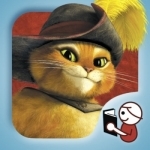
Puss In Boots Movie Storybook
Book and Entertainment
App
? No. 1 Readers’ Choice for Best 10 Kids Apps" - Best Apps for Kids ? ? Featured by Apple in...

Popular Science
News and Magazines & Newspapers
App
Popular Science is the magazine for anyone curious about what’s new and next. With a readership...
Night Reader Reviews (683 KP) rated Freiyon Fables: A Tail to Remember in Books
Jan 9, 2020
Honest Review for Free Copy of Book
Freiyon Fables: Tail to Remember by Justin Hunt was a book that I could only compare to one other book and that would be Chronicles of Narnia by C. S. Lewis. The Prologue promises an amazing tale, yet I feel as if the book doesn't quite live up to it. So even though I compare it to Narnia in style it is nothing like it when it comes to the actual material. The complete book itself is separated into three smaller books (or parts) that is then spread out into chapters.
In A Tail to Remember a squirrel by the name of Micklang escapes from a zoo and in the process is electrocuted, giving his tail a lightning-bolt shape. He then falls into another world in an Alice in Wonderland – down the rabbit hole style. In this new world, Micklang receives dreams about his warrior-self telling hi how to become that version of himself. During his journey, Micklang makes some surprising new friends and is reunited with some he has met before in the human world. It is with these friends that Micklang travels this new world, mapping it out.
At one point Micklang comes across an island where his traveling companions are captured and must rescue them before their captors harm them. Then after abandoning ship in a bad storm Micklang finds himself on yet another island, but this one is home to only other lightning-tail animals. Towards the end, Micklang goes back to one of the first islands that he visited in this new world, now called Freiyon. It is there that Micklang and his friends fight in the first battle in a war between The Grabbers and King Karel. It is during this battle that Micklang’s story ends but it is not the end of the stories about Freiyon. This is because a little human boy is told about Freiyon by his mother and decides it is time for him to visit this land of talking animals.
What I liked best about this book is that it is a rare occasion when I can honestly say that the ending, specifically the Epilogue is my favorite part. The epilogue tied the entire story together with the prologue when frankly I originally was confused about how it all connected. This actually redeemed the entire book in some ways. What I did not like was that the talking animals and being in a different world or realm gave the book a Chronicles of Narnia feel. Normally that would be a good thing but in this case, the writing style felt simplified and rushed at the same time. Also, this book felt like it was intended for children up until book three. In Book Three: The Switch Between Stories the phrases “What the HELL” and “how the HELL” were both used and that doesn't feel kid-friendly.
It was hard for me to pick a target audience for this book. My best guess would be for early middle school students and late elementary students, age-wise anyway. This is because the length might make it difficult for some elementary students (and some parents may not be thrilled about all the violence, who knows). Yet the simplified writing style may (or may not) appeal to older readers. Most likely it would be dry and boring for anyone out of middle school. That being said I rate this book a 2 out of 4. This is because this story falls in that dangerous zone between being simple enough for young readers and having just enough detail to feel rushed. The action moves from one major event to another without much of a break in between yet the story is still interesting
https://www.facebook.com/nightreaderreviews
In A Tail to Remember a squirrel by the name of Micklang escapes from a zoo and in the process is electrocuted, giving his tail a lightning-bolt shape. He then falls into another world in an Alice in Wonderland – down the rabbit hole style. In this new world, Micklang receives dreams about his warrior-self telling hi how to become that version of himself. During his journey, Micklang makes some surprising new friends and is reunited with some he has met before in the human world. It is with these friends that Micklang travels this new world, mapping it out.
At one point Micklang comes across an island where his traveling companions are captured and must rescue them before their captors harm them. Then after abandoning ship in a bad storm Micklang finds himself on yet another island, but this one is home to only other lightning-tail animals. Towards the end, Micklang goes back to one of the first islands that he visited in this new world, now called Freiyon. It is there that Micklang and his friends fight in the first battle in a war between The Grabbers and King Karel. It is during this battle that Micklang’s story ends but it is not the end of the stories about Freiyon. This is because a little human boy is told about Freiyon by his mother and decides it is time for him to visit this land of talking animals.
What I liked best about this book is that it is a rare occasion when I can honestly say that the ending, specifically the Epilogue is my favorite part. The epilogue tied the entire story together with the prologue when frankly I originally was confused about how it all connected. This actually redeemed the entire book in some ways. What I did not like was that the talking animals and being in a different world or realm gave the book a Chronicles of Narnia feel. Normally that would be a good thing but in this case, the writing style felt simplified and rushed at the same time. Also, this book felt like it was intended for children up until book three. In Book Three: The Switch Between Stories the phrases “What the HELL” and “how the HELL” were both used and that doesn't feel kid-friendly.
It was hard for me to pick a target audience for this book. My best guess would be for early middle school students and late elementary students, age-wise anyway. This is because the length might make it difficult for some elementary students (and some parents may not be thrilled about all the violence, who knows). Yet the simplified writing style may (or may not) appeal to older readers. Most likely it would be dry and boring for anyone out of middle school. That being said I rate this book a 2 out of 4. This is because this story falls in that dangerous zone between being simple enough for young readers and having just enough detail to feel rushed. The action moves from one major event to another without much of a break in between yet the story is still interesting
https://www.facebook.com/nightreaderreviews
Hadley (567 KP) rated A Deadly Education: Lesson One of the Scholomance in Books
Dec 19, 2020
A darker version of Harry Potter (1 more)
Witchcraft/occult
Main character was unlikable (1 more)
Too much internal dialogue
It's nice knowing that books about witches aren't dead. The main idea of Naomi Novik's new novel, A Deadly Education - - - a new series with the second book already slated to release in 2021 - - - is about a school of magic that is focused on survival. Of course, this may bring about similarities of J.K. Rowling's Harry Potter series, but this story is no way the same, A Deadly Education is a much darker witch school story with young murderers and also monsters that eat the students alive.
Yet this dark and morbid story is about a young girl who has been foreseen to possess powers that could destroy millions of people as our main character, and she can be quite off-putting at times. Her personality - - - a need to be liked, but refuses to allow anyone to like her, her need to show that she is always the smartest person in the room, and her blatant rudeness to a young man that saves her life more than once - - - makes it hard, as a reader, to root for this character. She does have moments of dark humor that made me laugh, moments of sarcasm that were pretty good, but she quickly assumes that everyone hates her and wants her to die before making it to senior graduation.
Galadriel is her name, but she prefers to go by El, and both of her parents were students at this Scholomance. She begins by talking about different kinds of witches there are at the school, including ones that use malia. Malia is a form of magic that takes it's mana from living things, including people. One such student she knows that uses malia is Yi Liu. El describes how malia of this sort slowly kills the one using it by telling the reader that Liu's eyes are turning all white, and her nails have gone completely black (and it's not polish).
Early on, readers are told about enclaves at the school, usually rich kids whose families have had more survivors from graduating classes than others. Students who are not part of these cliques know that it is very important to try to get an invitation to join one before senior year because your chances of survival are higher with a group than by yourself. El spends most of her time debating whether she wants to be part of one or not; her shifts in decisions are quite annoying. After she is saved by a student named Orion Lake, who is an enclaver from New York, she quickly decides to use him to obtain a seat in his enclave: " I couldn't blame her, really. It wasn't stupid to want to be pals with Orion if that looked like a real possibility. Aadhya's family lives in New Jersey: if she got into the New York enclave, she could probably pull them all inside. And I couldn't afford to alienate one of the vanishing few people who are willing to deal with me. "
Throughout the story, El becomes angrier and angrier every time that Lake saves her from being killed (which ends up almost being ten times), but one such time that he isn't able to, readers finally get to see what her powers have taught her, and this is practically the only time that we do: while an attack is happening in the library, El decides to go after Lake and help him save other students, but you can easily get lost in the library due to the shelves constantly moving, or you can be eaten because of the dark areas the shelves create; this is when a giant creature appears called a maw-mouth: "My whole body was clenched and waiting for it, and in the next flare of deep-red light I met half a dozen human eyes watching me, scattered over the thick rolling folds of the translucent, glossy mass that was just bulging its way out of the vent, many mouths open and working for air. " El tells us that the only way to stop a maw-mouth is to give it indigestion. "I stopped, and I used the best of the nineteen spells I know for killing an entire roomful of people, the shortest one; it's just three words in French, a la mort, but it must be cast carelessly, with a flick of the hand that most people get wrong, and if you get it even a little wrong, it kills you instead. " She does it correctly and the maw-mouth is defeated.
El believes that she saved a majority of the students from being killed by defeating the maw-mouth, but when she goes to breakfast the next morning, she finds out that a student had been 'poached' by a senior student. Every student's dorm room has a wall or spot that is nothing but a black abyss, where if anything that enters it will disappear forever. 'Poaching' is an act that has happened at the school before, and it's when a student pushes another student into the void, usually to take over their dorm room because the former's is unsafe. Oddly, this isn't surprising that it happened, when life at the school is life or death, people, especially teenagers, will make rash decisions without adults being present - - - yes, there are no teachers at this school, and everything seems to appear out of thin air.
The novel finally picks up pace when the wall leading to the graduation hall, which contains two maw-mouths for the senior class, is starting to break away, threatening to release any and all creatures into the school: "If a hole opened up to the graduation hall before the senior dorms were closed off, the seniors went from being the whole buffet to the toughest and most stale entrees on the menu. "
When the students decide to work together to patch up the hole, they soon find out that the senior students don't want it patched up: " 'But we also don't want to let you buy your lives with ours. That's what I hear seniors saying. Not, let's rip open the school, but why don't we make you, your class, graduate with us. Your class are the ones Orion has saved the most.' Chloe flinched visibly, and a lot of the other kids at our table tensed. 'So? Are you all willing to do that, graduate early, to save the poor little freshmen? If not, you can stop ' - - - she waved a hand in a spiraling circle, making a gesture of drama - - -'about how evil we are because we don't want to die...' "
The atmosphere in the story makes the threat of death in the school very real, but Novik's main character isn't well-written; there are side characters that I found much more interesting than El, and were better written. Lake is even a better character - - - especially when readers find out why he has a need to save people - - - I honestly believe it would have been a better story from Lake's point-of-view. Also, the amount of explaining that Novik does in the novel really breaks up the flow of the story, sometimes stopping right in the middle of an important scene just to explain something about the school.
I will be reading the sequel when it comes out because I do want to know what happens to a lot of the side characters and their senior graduation, but I can only recommend this book to people who love stories about witches and the occult. As for horror fans, I don't think you would get your fix from this novel.
Yet this dark and morbid story is about a young girl who has been foreseen to possess powers that could destroy millions of people as our main character, and she can be quite off-putting at times. Her personality - - - a need to be liked, but refuses to allow anyone to like her, her need to show that she is always the smartest person in the room, and her blatant rudeness to a young man that saves her life more than once - - - makes it hard, as a reader, to root for this character. She does have moments of dark humor that made me laugh, moments of sarcasm that were pretty good, but she quickly assumes that everyone hates her and wants her to die before making it to senior graduation.
Galadriel is her name, but she prefers to go by El, and both of her parents were students at this Scholomance. She begins by talking about different kinds of witches there are at the school, including ones that use malia. Malia is a form of magic that takes it's mana from living things, including people. One such student she knows that uses malia is Yi Liu. El describes how malia of this sort slowly kills the one using it by telling the reader that Liu's eyes are turning all white, and her nails have gone completely black (and it's not polish).
Early on, readers are told about enclaves at the school, usually rich kids whose families have had more survivors from graduating classes than others. Students who are not part of these cliques know that it is very important to try to get an invitation to join one before senior year because your chances of survival are higher with a group than by yourself. El spends most of her time debating whether she wants to be part of one or not; her shifts in decisions are quite annoying. After she is saved by a student named Orion Lake, who is an enclaver from New York, she quickly decides to use him to obtain a seat in his enclave: " I couldn't blame her, really. It wasn't stupid to want to be pals with Orion if that looked like a real possibility. Aadhya's family lives in New Jersey: if she got into the New York enclave, she could probably pull them all inside. And I couldn't afford to alienate one of the vanishing few people who are willing to deal with me. "
Throughout the story, El becomes angrier and angrier every time that Lake saves her from being killed (which ends up almost being ten times), but one such time that he isn't able to, readers finally get to see what her powers have taught her, and this is practically the only time that we do: while an attack is happening in the library, El decides to go after Lake and help him save other students, but you can easily get lost in the library due to the shelves constantly moving, or you can be eaten because of the dark areas the shelves create; this is when a giant creature appears called a maw-mouth: "My whole body was clenched and waiting for it, and in the next flare of deep-red light I met half a dozen human eyes watching me, scattered over the thick rolling folds of the translucent, glossy mass that was just bulging its way out of the vent, many mouths open and working for air. " El tells us that the only way to stop a maw-mouth is to give it indigestion. "I stopped, and I used the best of the nineteen spells I know for killing an entire roomful of people, the shortest one; it's just three words in French, a la mort, but it must be cast carelessly, with a flick of the hand that most people get wrong, and if you get it even a little wrong, it kills you instead. " She does it correctly and the maw-mouth is defeated.
El believes that she saved a majority of the students from being killed by defeating the maw-mouth, but when she goes to breakfast the next morning, she finds out that a student had been 'poached' by a senior student. Every student's dorm room has a wall or spot that is nothing but a black abyss, where if anything that enters it will disappear forever. 'Poaching' is an act that has happened at the school before, and it's when a student pushes another student into the void, usually to take over their dorm room because the former's is unsafe. Oddly, this isn't surprising that it happened, when life at the school is life or death, people, especially teenagers, will make rash decisions without adults being present - - - yes, there are no teachers at this school, and everything seems to appear out of thin air.
The novel finally picks up pace when the wall leading to the graduation hall, which contains two maw-mouths for the senior class, is starting to break away, threatening to release any and all creatures into the school: "If a hole opened up to the graduation hall before the senior dorms were closed off, the seniors went from being the whole buffet to the toughest and most stale entrees on the menu. "
When the students decide to work together to patch up the hole, they soon find out that the senior students don't want it patched up: " 'But we also don't want to let you buy your lives with ours. That's what I hear seniors saying. Not, let's rip open the school, but why don't we make you, your class, graduate with us. Your class are the ones Orion has saved the most.' Chloe flinched visibly, and a lot of the other kids at our table tensed. 'So? Are you all willing to do that, graduate early, to save the poor little freshmen? If not, you can stop ' - - - she waved a hand in a spiraling circle, making a gesture of drama - - -'about how evil we are because we don't want to die...' "
The atmosphere in the story makes the threat of death in the school very real, but Novik's main character isn't well-written; there are side characters that I found much more interesting than El, and were better written. Lake is even a better character - - - especially when readers find out why he has a need to save people - - - I honestly believe it would have been a better story from Lake's point-of-view. Also, the amount of explaining that Novik does in the novel really breaks up the flow of the story, sometimes stopping right in the middle of an important scene just to explain something about the school.
I will be reading the sequel when it comes out because I do want to know what happens to a lot of the side characters and their senior graduation, but I can only recommend this book to people who love stories about witches and the occult. As for horror fans, I don't think you would get your fix from this novel.
